Search titles
Displaying results 31 to 40 of 78.
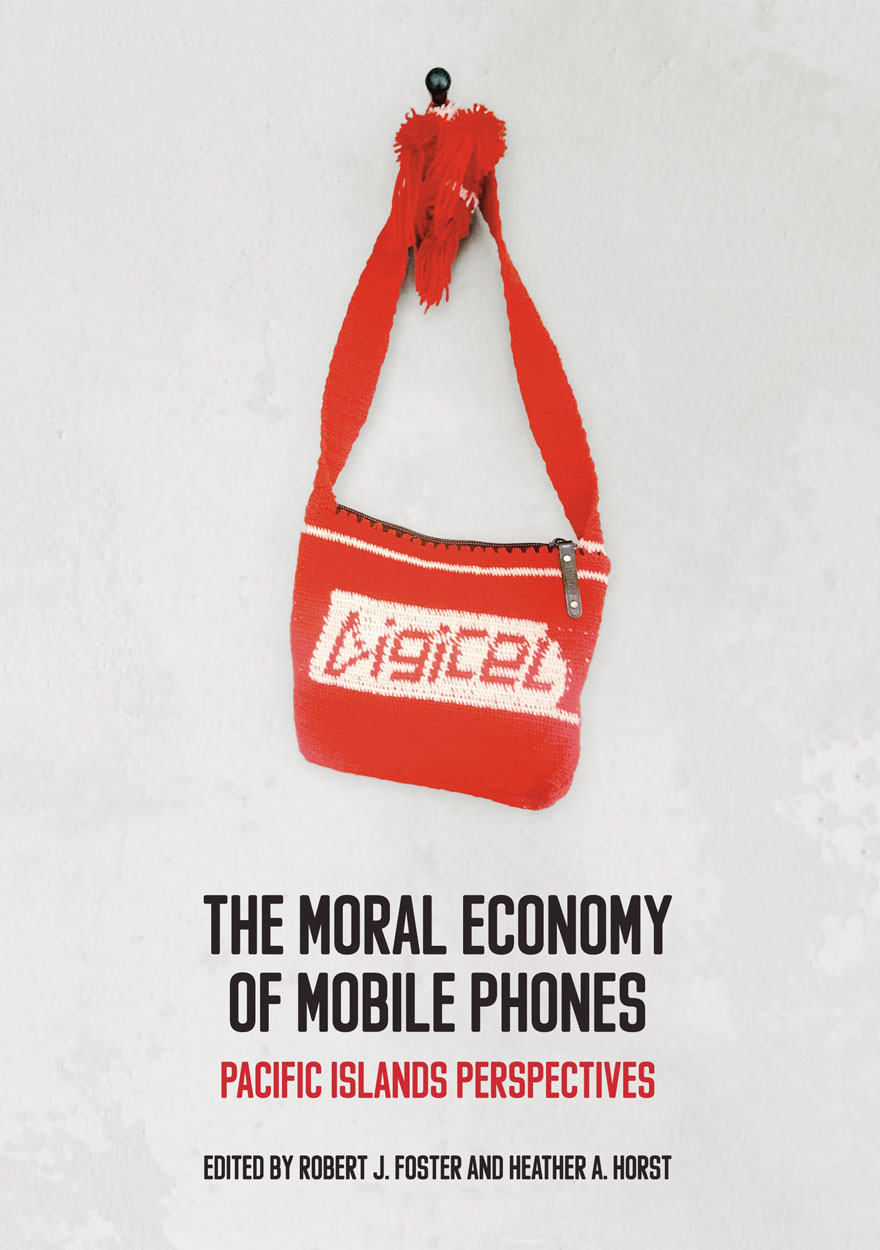
The Moral Economy of Mobile Phones »
Pacific Islands Perspectives
Edited by: Robert J. Foster, Heather A. Horst
Publication date: May 2018
The moral economy of mobile phones implies a field of shifting relations among consumers, companies and state actors, all of whom have their own ideas about what is good, fair and just. These ideas inform the ways in which, for example, consumers acquire and use mobile phones; companies promote and sell voice, SMS and data subscriptions; and state actors regulate both everyday use of mobile phones and market activity around mobile phones. Ambivalence and disagreement about who owes what to whom is thus an integral feature of the moral economy of mobile phones. This volume identifies and evaluates the stakes at play in the moral economy of mobile phones. The six main chapters consider ethnographic cases from Papua New Guinea, Fiji and Vanuatu. The volume also includes a brief introduction with background information on the recent ‘digital revolution’ in these countries and two closing commentaries that reflect on the significance of the chapters for our understanding of global capitalism and the contemporary Pacific.

Hybridity on the Ground in Peacebuilding and Development »
Critical Conversations
Publication date: March 2018
Hybridity on the Ground in Peacebuilding and Development engages with the possibilities and pitfalls of the increasingly popular notion of hybridity. The hybridity concept has been embraced by scholars and practitioners in response to the social and institutional complexities of peacebuilding and development practice. In particular, the concept appears well-suited to making sense of the mutually constitutive outcomes of processes of interaction between diverse norms, institutions, actors and discourses in the context of contemporary peacebuilding and development engagements. At the same time, it has been criticised from a variety of perspectives for overlooking critical questions of history, power and scale. The authors in this interdisciplinary collection draw on their in‑depth knowledge of peacebuilding and development contexts in different parts of Asia, the Pacific and Africa to examine the messy and dynamic realities of hybridity ‘on the ground’. By critically exploring the power dynamics, and the diverse actors, ideas, practices and sites that shape hybrid peacebuilding and development across time and space, this book offers fresh insights to hybridity debates that will be of interest to both scholars and practitioners.
‘Hybridity has become an influential idea in peacebuilding and this volume will undoubtedly become the most influential collection on the idea. Nuance and sophistication characterises this engagement with hybridity.’
— Professor John Braithwaite
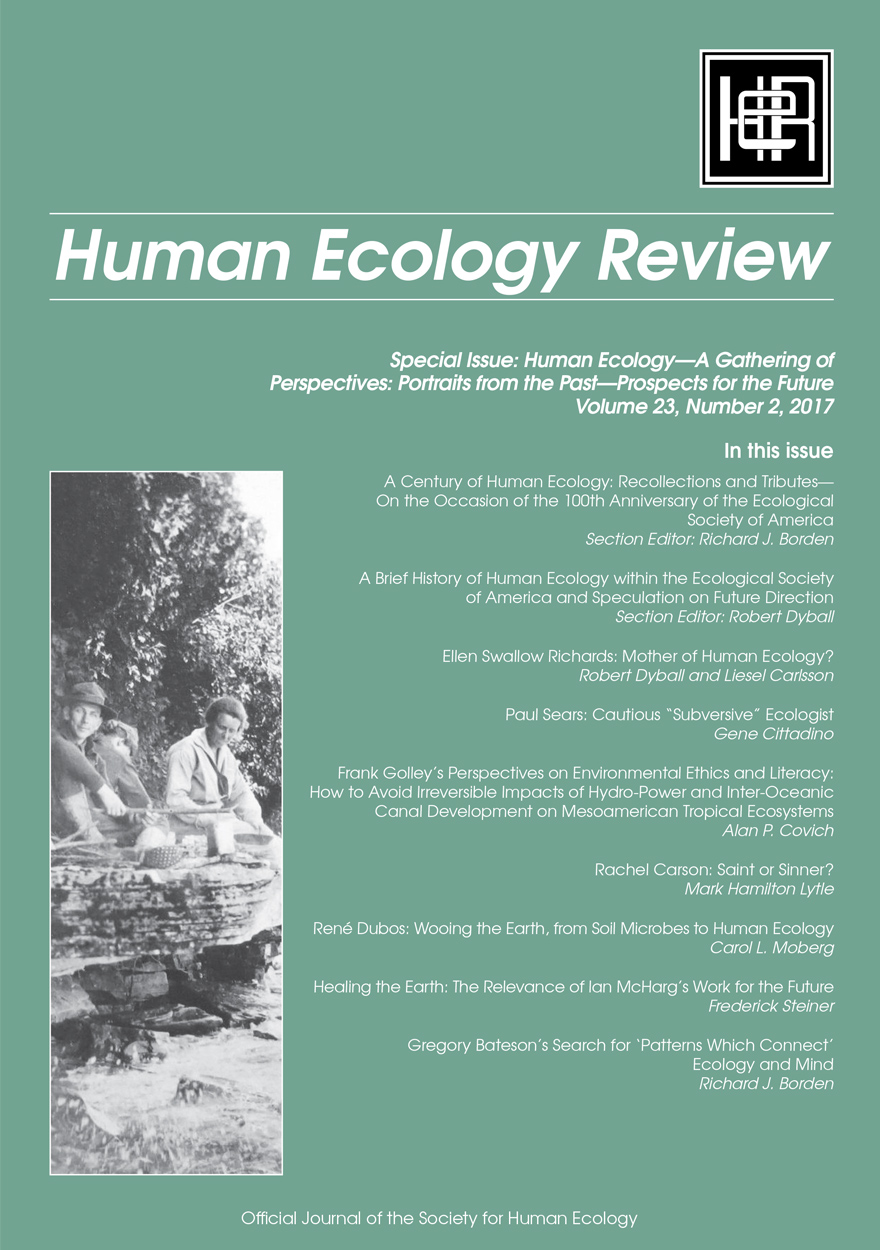
Human Ecology Review: Volume 23, Number 2 »
Special Issue: Human Ecology—A Gathering of Perspectives: Portraits from the Past—Prospects for the Future
Publication date: December 2017
Human Ecology Review is a semi-annual journal that publishes peer-reviewed interdisciplinary research on all aspects of human–environment interactions (Research in Human Ecology). The journal also publishes essays, discussion papers, dialogue, and commentary on special topics relevant to human ecology (Human Ecology Forum), book reviews (Contemporary Human Ecology), and letters, announcements, and other items of interest (Human Ecology Bulletin). Human Ecology Review also publishes an occasional paper series in the Philosophy of Human Ecology and Social–Environmental Sustainability.
Download for free
Not available for purchase
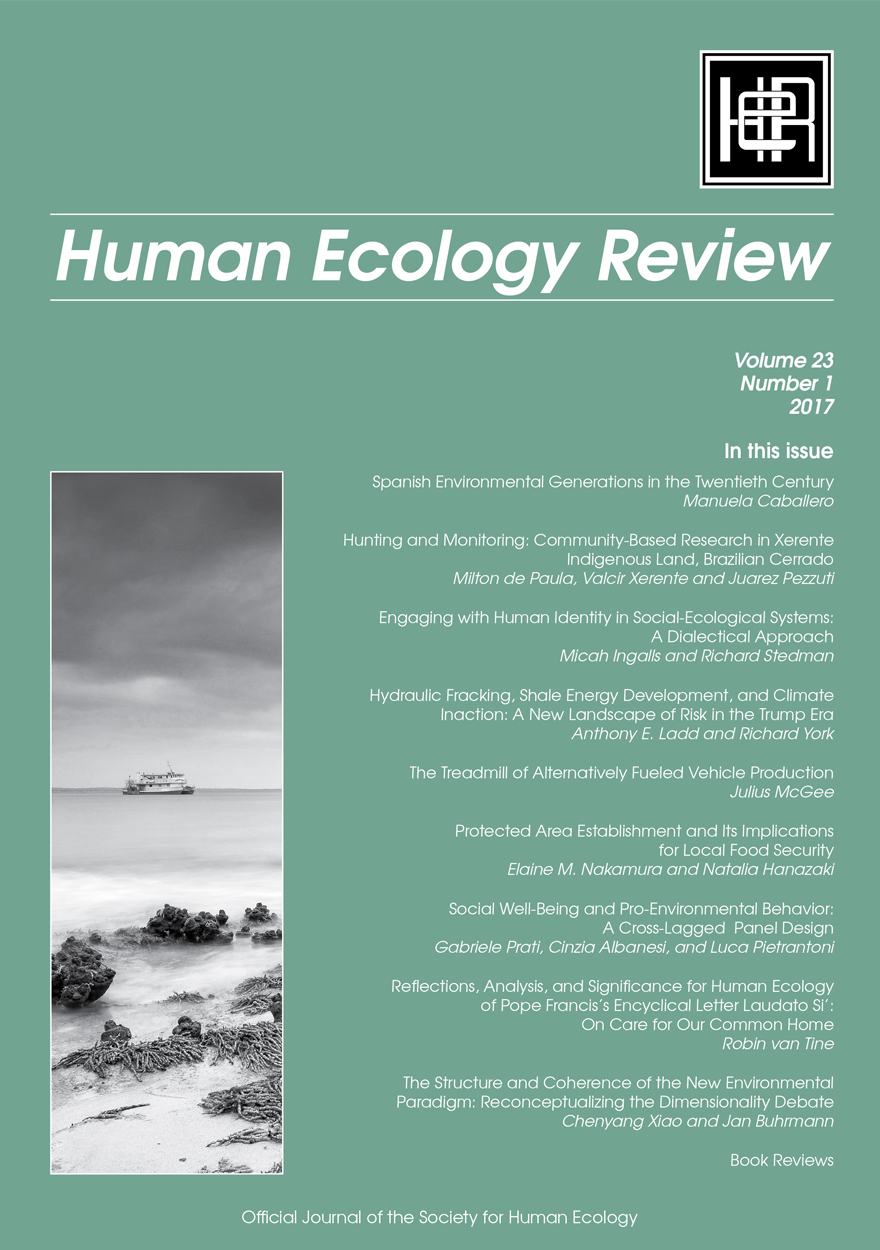
Human Ecology Review: Volume 23, Number 1 »
Publication date: September 2017
Human Ecology Review is a semi-annual journal that publishes peer-reviewed interdisciplinary research on all aspects of human–environment interactions (Research in Human Ecology). The journal also publishes essays, discussion papers, dialogue, and commentary on special topics relevant to human ecology (Human Ecology Forum), book reviews (Contemporary Human Ecology), and letters, announcements, and other items of interest (Human Ecology Bulletin). Human Ecology Review also publishes an occasional paper series in the Philosophy of Human Ecology and Social–Environmental Sustainability.
Download for free
Not available for purchase
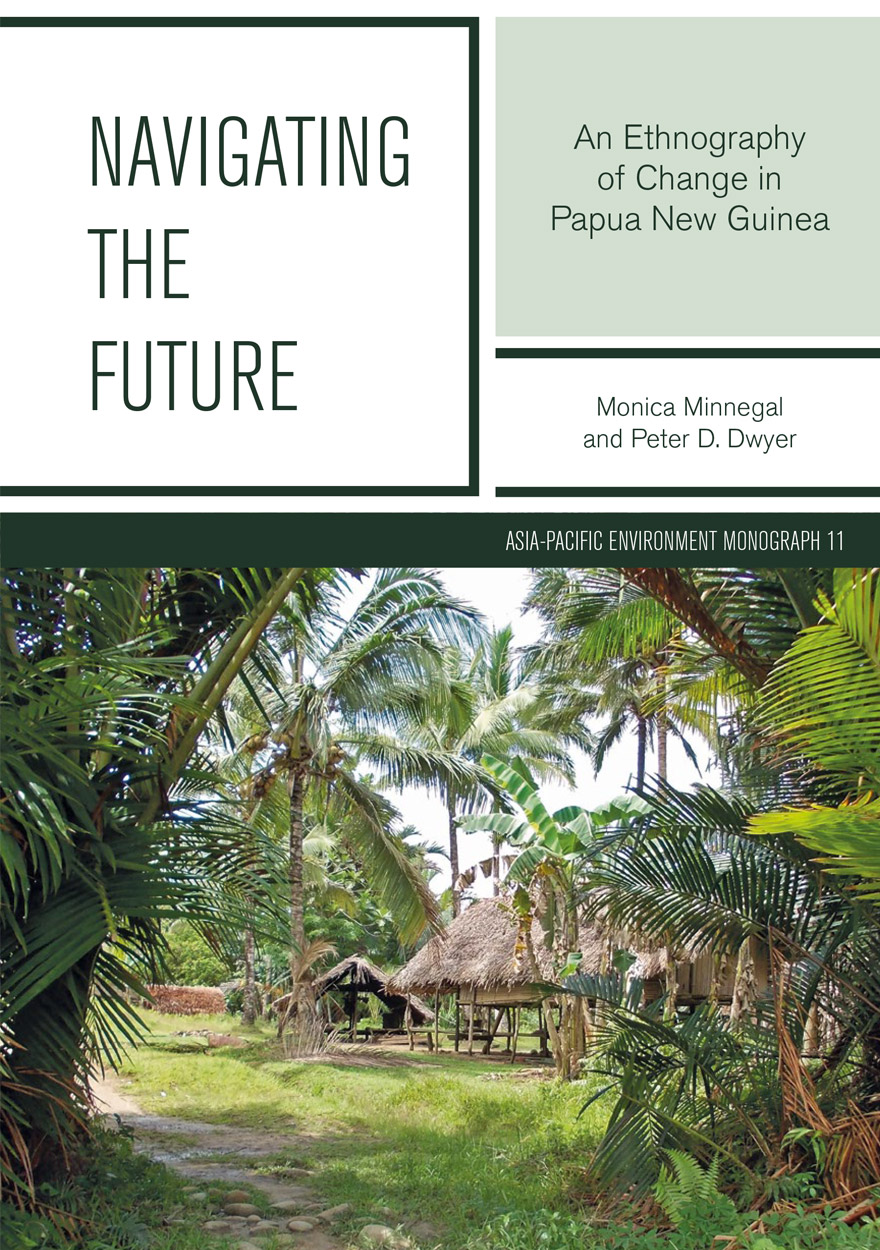
Navigating the Future »
An Ethnography of Change in Papua New Guinea
Authored by: Monica Minnegal, Peter D. Dwyer
Publication date: June 2017
Navigating the Future draws on long-term ethnographic fieldwork with Kubo people and their neighbours, in a remote area of Papua New Guinea, to explore how worlds are reconfigured as people become increasingly conscious of, and seek to draw into their own lives, wealth and power that had previously lain beyond their horizons. In the context of a major resource extraction project—the Papua New Guinea Liquefied Natural Gas (PNG LNG) Project–taking shape in the mountains to the north, the people in this area are actively reimagining their social world. This book describes changes in practice that result, tracing shifts in the ways people relate to the land, to each other and to outsiders, and the histories of engagement that frame those changes. Inequalities are emerging between individuals in access to paid work, between groups in potential for claiming future royalties, and between generations in access to information. As people at the village of Suabi strive to make themselves visible to the state and to petroleum companies, as legal entities entitled to receive benefits from the PNG LNG Project, they are drawing new boundaries around sets of people and around land and declaring hierarchical relationships between groups that did not exist before. They are struggling to make sense of a bureaucracy that is foreign to them, in a place where the state currently has minimal presence. A primary concern of Navigating the Future is with the processes through which these changes have emerged, as people seek to imagine—and work to bring about—a radically different future for themselves while simultaneously reimagining their own past in ways that validate those endeavours.
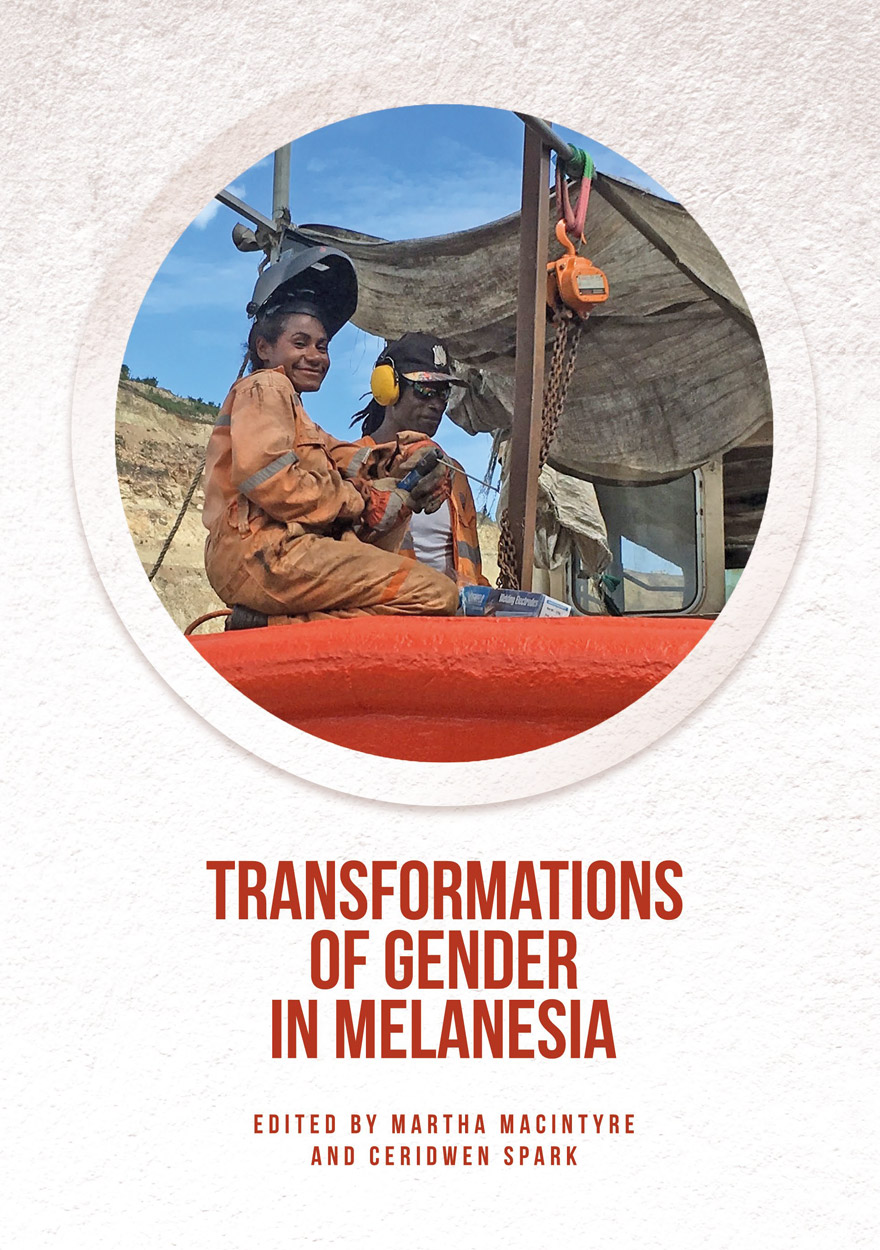
Transformations of Gender in Melanesia »
Edited by: Martha Macintyre, Ceridwen Spark
Publication date: February 2017
Despite the plethora of research on gender and the many projects designed to improve their status in the Pacific region, women continue to be disadvantaged and marginalised in social, economic and political spheres. How are we to understand this and what does it mean for researchers, policy-makers and development practitioners?
This book examines these questions, partly by looking back but also by continuing the effort to explain and understand gender inequities in the Pacific through reference to the concept of societies in transition. The contributors discuss emerging masculinities and femininities in the Pacific in order to chart the development of these in their contexts. Exploring how contemporary Pacific identities are shaped by local contexts and traditions, they focus on how these are remade through interaction with global ideas, images and practices, including new forms of Christianity and economic transformations. Grounded in recent, original research in both the villages and towns of Melanesia, the collection engages with the study of gender in Melanesia as well as scholarship on global modernities.
‘This collection is a welcome addition to the study of gender in Melanesia … Collectively, the essays present complex, locally contextualised and regionally situated case studies of gender transformation occurring alongside, in many instances, the re-codification of hegemonic gendered norms and practices. Gender is not understood as simply code for women in this volume rather, the majority of chapters incorporate men and masculinities in their analysis of gender relations and dynamics. A highlight of the collection is the attention paid to how “the politics of tradition” (and of modernity) are expressed through morally loaded concepts of the “good” or “bad” woman or man and vice versa.’
— Kalissa Alexeyeff, University of Melbourne

Touring Pacific Cultures »
Edited by: Kalissa Alexeyeff, John Taylor
Publication date: December 2016
Tourism is vital to the economies of most Pacific nations and as such is an important site for the meaningful production of shared and disputed cultural values and practices. This is especially the case when tourism intersects with other important arenas for cultural production, both directly and indirectly. Touring Pacific Cultures captures the central importance of tourism to the visual, material and performed cultures of the Pacific region. In this volume, we propose to explore new directions in understanding how culture is defined, produced, experienced and sustained through tourism-related practices across that region. We ask, how is cultural value, ownership, performance and commodification negotiated and experienced in actual lived practice as it moves with people across the Pacific?
‘This collection is a welcome addition to tourism studies, or perhaps we should say post- or para-tourism. The essays bring out many facets and experiences too quickly bundled under a single label and focused exclusively on “destinations” visited by “outsiders”. Tourism, we see here, actively involves many different populations, societies, and economies, a range of local/global/regional engagements that can be both destructive and creative. Western outsiders aren’t the only ones on the move. Unequal power, (neo)colonial exploitation and capitalist commodification are very much part of the picture. But so are desire, adventure, pleasure, cultural reinvention and economic development. The effect, overall, is an attitude of alert, critical ambivalence with respect to a proliferating historical phenomenon.
A bumpy and rewarding ride.’
— James Clifford, Professor Emeritus, University of California, Santa Cruz
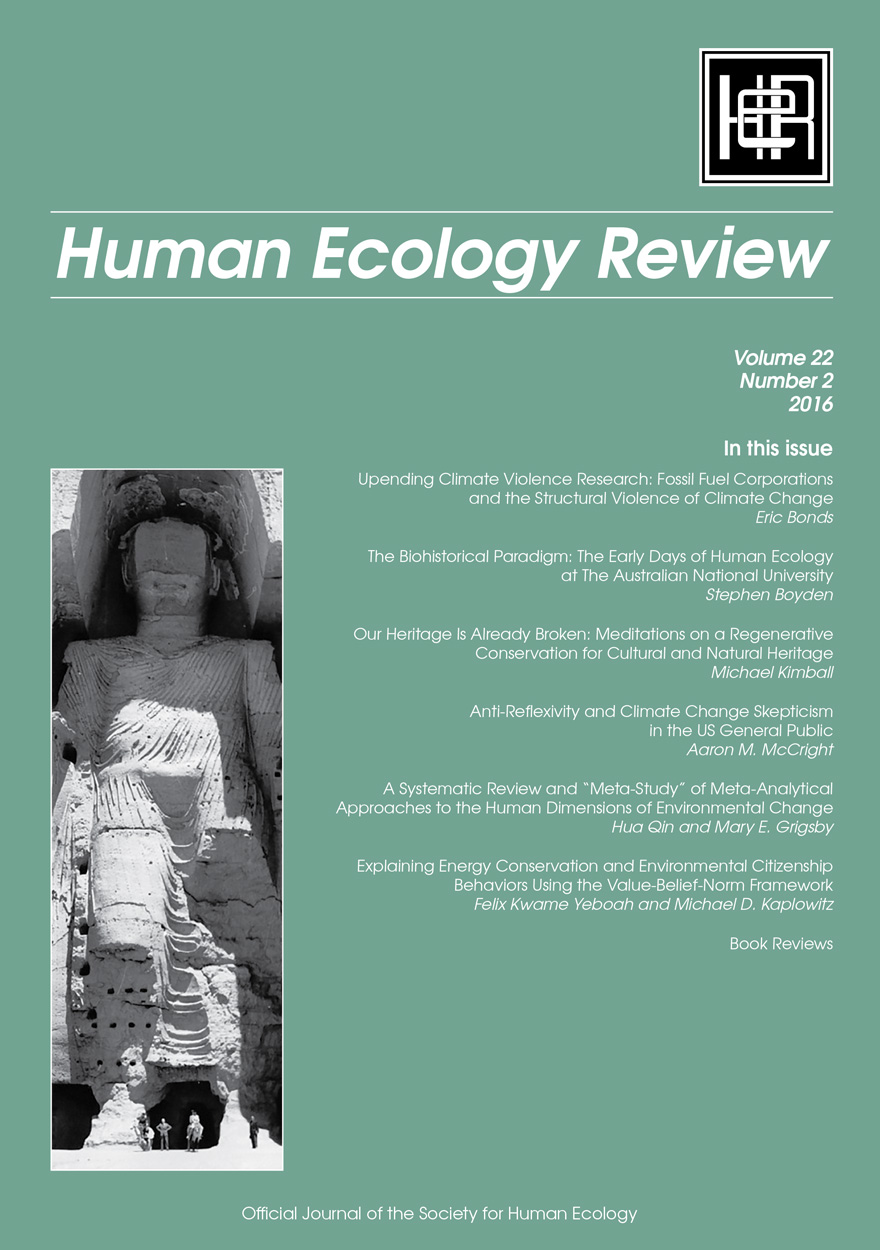
Human Ecology Review: Volume 22, Number 2 »
Publication date: July 2016
Human Ecology Review is a semi-annual journal that publishes peer-reviewed interdisciplinary research on all aspects of human–environment interactions (Research in Human Ecology). The journal also publishes essays, discussion papers, dialogue, and commentary on special topics relevant to human ecology (Human Ecology Forum), book reviews (Contemporary Human Ecology), and letters, announcements, and other items of interest (Human Ecology Bulletin). Human Ecology Review also publishes an occasional paper series in the Philosophy of Human Ecology and Social–Environmental Sustainability.
Download for free
Not available for purchase

Confronting Fiji Futures »
Edited by: A. Haroon Akram-Lodhi
Publication date: January 2016
Fiji, post-independence, has seen several governments, two military coups and, amidst sweeping social, economic and political changes, the presence of divisive identity politics in its journey towards a united, collective Fiji community.
This republished edition of Confronting Fiji Futures takes in these landmark events and eventualities, and aims at a forward-looking assessment of the realities facing Fiji in the present and the future. It focuses on the period of the coups up to and including the 1999 general elections, when an explicitly multiethnic party won government in a surprise landslide result.
This book is the result of a collaborative research project based at the Institute of Social Studies, The Hague, in the Netherlands — an institution with a long tradition of collaborative teaching, research and advisory services in the South Pacific region. It aims to present a range of relevant issues from a number of vantage points. It has brought together a strong diversity of authors led by A. Haroon Akram-Lodhi, including John Cameron, Ganesh Chand, Martin Doornbos, Yash Ghai, Holger Korth, Sunil Kumar, Biman Prasad, Jacqueline Leckie, Satendra Prasad, Steve Ratuva, Robbie Robertson, Ardeshir Sepehri and William Sutherland.
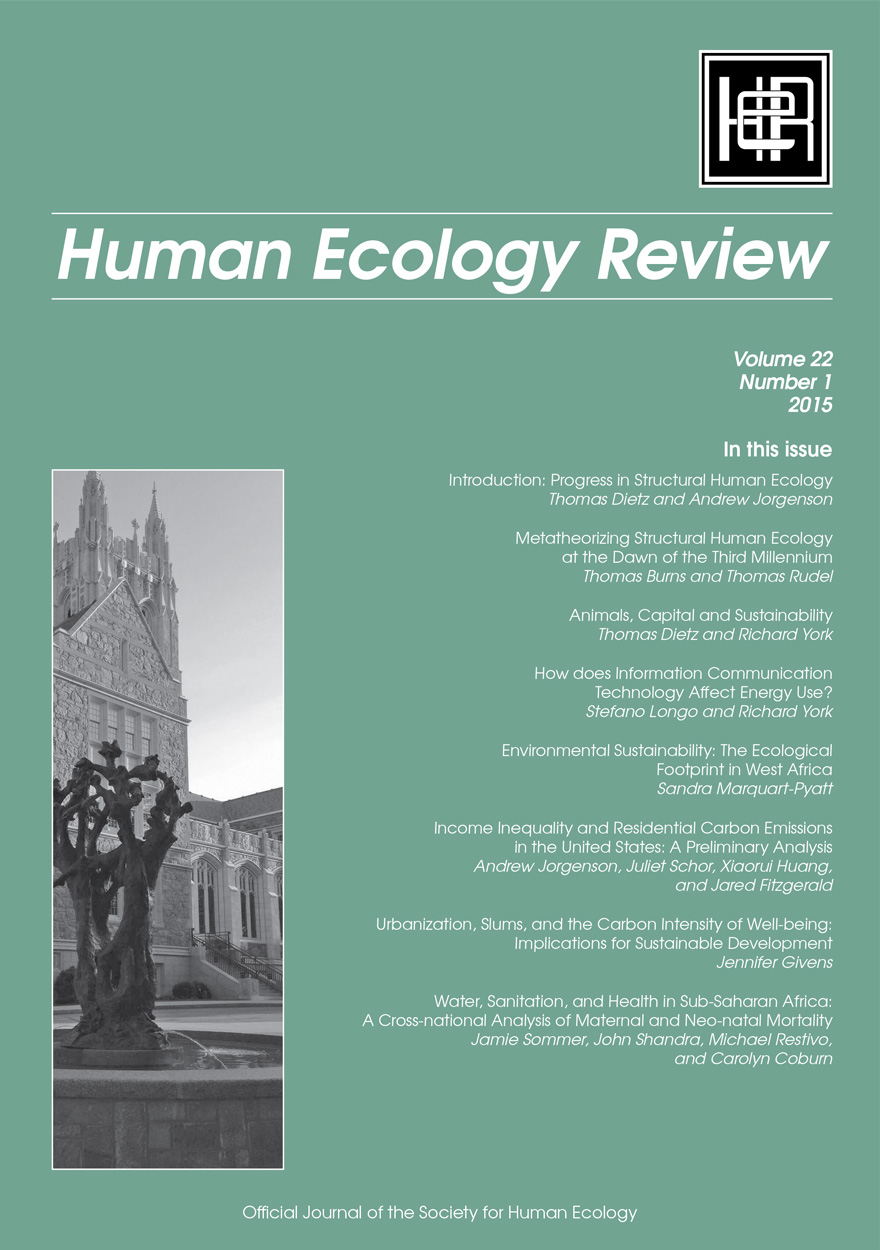
Human Ecology Review: Volume 22, Number 1 »
Publication date: December 2015
Human Ecology Review is a semi-annual journal that publishes peer-reviewed interdisciplinary research on all aspects of human–environment interactions (Research in Human Ecology). The journal also publishes essays, discussion papers, dialogue, and commentary on special topics relevant to human ecology (Human Ecology Forum), book reviews (Contemporary Human Ecology), and letters, announcements, and other items of interest (Human Ecology Bulletin). Human Ecology Review also publishes an occasional paper series in the Philosophy of Human Ecology and Social–Environmental Sustainability.
Download for free
Not available for purchase



